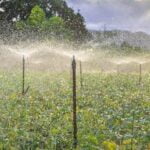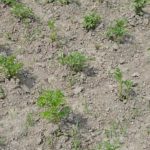Are you looking to extend your gardening season and enjoy fresh, homegrown produce even in the colder months? Winter gardening vegetables may be just what you need.
With the right planning and care, you can continue to cultivate a bountiful garden during the winter season, providing yourself with healthy and delicious vegetables straight from your backyard. In this article, we will explore the benefits of winter gardening vegetables and provide tips for choosing the right plants, preparing your garden, planting and caring for your crops, protecting them from frost and cold weather, harvesting, cooking ideas, and tips for success.
When it comes to winter gardening vegetables, there are numerous advantages to consider. Not only can you continue to enjoy fresh and nutritious produce throughout the colder months, but you can also save money on groceries while staying connected to nature. Furthermore, growing your own winter vegetables allows you to have more control over how they are grown – whether organically or using specific techniques tailored to your preferences.
In this guide, we will delve into everything you need to know about winter gardening vegetables. From selecting the right plants that thrive in colder temperatures to offering strategies for overcoming challenges unique to winter gardening. Whether you’re a seasoned gardener or new to the world of growing your own food, this comprehensive resource will provide valuable insight into embracing the joys of winter gardening vegetables. So grab your gloves and let’s get started.
Choosing the Right Winter Vegetables for Your Garden
When it comes to winter gardening vegetables, choosing the right crops for your garden is essential for a successful winter yield. There are plenty of options to consider, but some cold-hardy vegetables thrive in cooler temperatures and can withstand frost and snow.
One popular option for winter gardening vegetables is kale, which is not only hardy but also incredibly versatile in the kitchen. Another great choice is Brussels sprouts, which actually benefit from being exposed to a bit of frost, as it enhances their flavor. Root vegetables such as carrots and turnips are also excellent choices for winter gardens, as they can be harvested throughout the winter months.
Lettuce and spinach are cold-tolerant leafy greens that can be grown in the winter months with proper care. Additionally, garlic and onions can be planted in the fall and overwintered to be harvested in the spring. These choices offer a variety of flavors and nutrients to enhance your winter meals.
| Winter Vegetable | Optimal Growing Conditions |
|---|---|
| Kale | Cool weather, full sun or partial shade |
| Brussels Sprouts | Cold weather with exposure to light frost |
| Carrots | Well-drained soil; tolerant of light frosts |
| Lettuce | Cool temperatures; partial shade |
By considering these options and their growing conditions, you can make informed decisions on which winter gardening vegetables are best suited for your garden.
Preparing Your Garden for Winter Vegetables
Clearing and Cleaning
Before planting your winter gardening vegetables, it’s important to prepare your garden by clearing out any remaining debris from the previous growing season. Remove any dead plants, weeds, and debris to ensure a clean and healthy environment for your new crops. Clearing out old plant material can also help reduce the risk of pests and diseases that may linger in the garden.
Amending Soil
Once the garden is cleared, it’s time to prepare the soil for winter vegetables. Conduct a soil test to determine its pH levels and nutrient content. Based on the results, amend the soil with organic matter such as compost or well-rotted manure to improve its fertility and texture. Adequate soil preparation will provide a strong foundation for your winter gardening vegetables to thrive throughout the season.
Creating Microclimates
In some regions, creating microclimates within your garden can be beneficial for protecting winter gardening vegetables from harsh weather conditions. Consider using row covers, cold frames, or cloches to provide additional insulation and protection. By creating these microclimates, you can extend the growing season for certain crops and ensure a more successful harvest of winter vegetables.
By following these steps to prepare your garden for winter vegetables, you can set the stage for a successful growing season and enjoy an abundant harvest of fresh, nutritious produce during the colder months.
Planting and Caring for Winter Vegetables
When it comes to winter gardening vegetables, the key to a successful harvest lies in planting the right crops at the right time and caring for them properly throughout the season. Here are some essential tips for planting and caring for your winter vegetables:
1. Selecting the Right Plants: When choosing which winter vegetables to plant, opt for cold-hardy varieties that can withstand frost and low temperatures. Some popular choices include carrots, kale, Brussels sprouts, and broccoli.
2. Planting Schedule: It’s crucial to plant your winter vegetables at the right time to ensure they have enough time to mature before the coldest months set in. Consult a planting calendar specific to your region to determine the ideal planting dates for each crop.
3. Proper Care: Once your winter vegetables are planted, it’s important to provide them with proper care throughout the season. This includes regular watering, mulching to insulate the soil, and protecting them from pests that may still be active during the winter months.
By following these tips for planting and caring for your winter vegetables, you can enjoy a bountiful harvest of fresh produce even during the coldest months of the year.
Remember that with proper attention and care, your garden can yield an abundance of delicious winter gardening vegetables that will not only enhance your meals but also provide you with a sense of accomplishment in growing your own food during the off-season.
Protecting Your Winter Vegetables From Frost and Cold Weather
When it comes to winter gardening vegetables, one of the major challenges is protecting your plants from frost and cold weather. Without proper protection, your hard work in choosing and caring for the right winter vegetables can be at risk. However, with some careful planning and the right tools, you can ensure that your winter garden thrives even in the coldest temperatures.
Choosing the Right Coverings
One of the most effective ways to protect your winter vegetables from frost is by using coverings. Row covers, cloches, cold frames, and greenhouse tunnels are all popular options for shielding plants from harsh weather. Each type of covering has its own advantages, so it’s important to choose the right one based on your specific needs and the types of vegetables you are growing.
Monitoring Weather Conditions
Another key aspect of protecting your winter vegetables is staying informed about upcoming weather conditions. Keep a close eye on local forecasts and be prepared to take action if a frost or freezing temperatures are expected. This may involve covering your plants before nightfall or moving them to a more sheltered area if possible.
Implementing Good Watering Practices
Believe it or not, proper watering can also help protect your winter vegetables from frost damage. Well-hydrated plants are better equipped to withstand cold temperatures than those that are dry and stressed. However, be cautious not to overwater as excessive moisture can also harm your plants. Finding the right balance is essential for keeping your winter garden healthy throughout the season.
By taking these steps to protect your winter gardening vegetables from frost and cold weather, you can increase their chances of survival and continue enjoying fresh produce even in the depths of winter.
Harvesting and Enjoying Your Winter Vegetables
Once your winter vegetables have reached maturity, it’s time to harvest and enjoy the fruits of your labor. The cool weather of the winter months can actually enhance the flavor of many vegetables, making them even more enjoyable to eat. One of the great things about winter gardening vegetables is that they can often be harvested over a longer period of time, allowing you to enjoy fresh produce throughout the season.
When harvesting winter vegetables, it’s important to do so at the right time to ensure optimal flavor and texture. Root vegetables such as carrots and parsnips can be left in the ground until you are ready to use them, but be sure to harvest them before the ground freezes completely. Leafy greens like kale and spinach can also be harvested as needed, simply by picking individual leaves rather than uprooting the entire plant.
After harvesting your winter vegetables, it’s time to enjoy them in a variety of delicious recipes. Roasting root vegetables with herbs and olive oil can bring out their natural sweetness, while hearty soups and stews made with winter greens and squash are perfect for warming up on a cold day. Experimenting with different cooking methods and flavor combinations can help you make the most of your winter garden bounty.
In addition to enjoying your own homegrown produce, consider sharing your harvest with friends and family or donating excess crops to local food banks or community organizations. There is a special satisfaction that comes from knowing that your efforts in winter gardening vegetables are not only benefiting you but also contributing to the well-being of others.
Winter Gardening Vegetable Recipes and Cooking Ideas
One of the greatest joys of winter gardening vegetables is being able to harvest your own fresh produce and use it in delicious, healthy meals. From hearty soups and stews to roasted vegetable dishes, there are countless ways to incorporate your homegrown winter vegetables into your cooking. Not only does this add a special touch to your meals, but it also allows you to fully experience the flavors and nutritional benefits of these seasonal vegetables.
When it comes to cooking with winter garden vegetables, there are endless possibilities. Root vegetables like carrots, turnips, and parsnips can be roasted with a drizzle of olive oil and some herbs for a simple yet flavorful side dish.
Leafy greens such as kale, spinach, and Swiss chard can be added to soups, stir-fries, or even used as a base for a nutritious salad. Additionally, winter squash varieties like butternut squash and acorn squash can be pureed into creamy soups or roasted as a standalone dish.
In addition to using your winter garden vegetables in traditional recipes, consider experimenting with new cooking methods and flavor combinations. For example, try pickling some of your harvested root vegetables to enjoy them as a tangy addition to sandwiches or salads.
You could also blend together different winter vegetables to create colorful and nutritious purees that can be served as a flavorful accompaniment to main dishes. The key is to get creative and have fun exploring the culinary possibilities of your homegrown winter produce.
Tips for Success With Winter Gardening Vegetables
When it comes to successfully growing winter gardening vegetables, there are a few key tips to keep in mind. With the right knowledge and preparation, you can ensure a bountiful harvest even during the colder months. Here are some essential tips for success with winter gardening vegetables:
- Choose the Right Varieties: Selecting vegetables that are well-suited for winter growing is crucial. Look for cold-hardy varieties that can withstand frost and low temperatures, such as kale, spinach, carrots, and Brussels sprouts.
- Provide Adequate Protection: To protect your winter gardening vegetables from harsh weather conditions, consider using row covers, cold frames, or mulch. These can help insulate the soil and provide additional warmth for your plants.
- Monitor Soil Moisture: While it’s important not to overwater your winter vegetables, it’s also essential to ensure that they receive adequate moisture. Be mindful of dry spells and water your plants as needed to prevent them from drying out.
In addition to these tips, it’s also crucial to pay attention to the specific needs of each type of vegetable you’re growing. Some may require additional care or specific growing conditions, so be sure to research each plant’s requirements. By following these tips and staying attentive to the needs of your winter gardening vegetables, you can set yourself up for a successful and rewarding growing season.
Winter gardening vegetables have their own unique beauty and flavor that adds a special touch to any dish. With their rich colors and earthy flavors, they can bring warmth and comfort during the colder months. To get the most out of your winter harvest, experiment with different cooking methods and recipes that highlight the natural qualities of these seasonal vegetables.
- Roasting: Roasting root vegetables such as potatoes, carrots, and beets brings out their natural sweetness and caramelizes their edges for a delightful crunch.
- Soups and Stews: Hearty soups and stews made with winter greens like kale or Swiss chard provide nourishment and warmth on chilly days.
- Casseroles: Combine various winter veggies like squash, Brussels sprouts, and parsnips in casseroles for a comforting one-dish meal.
Whether you’re an experienced gardener or just starting out with winter gardening vegetables, experimenting with different recipes can elevate your culinary experience. From simple roasted dishes to complex gourmet meals, there are endless ways to showcase the delicious flavors of your homegrown produce. By exploring new cooking ideas with your seasonal harvest, you can fully savor the joys of winter gardening vegetables.
Conclusion
In conclusion, winter gardening vegetables offer a variety of benefits and joys that are worth embracing. Not only do they provide fresh, nutritious produce during the colder months, but they also contribute to the overall health and well-being of both gardeners and their families. Additionally, engaging in winter gardening can be a rewarding and fulfilling experience, allowing individuals to connect with nature and enjoy the satisfaction of growing their own food.
When it comes to choosing the right winter vegetables for your garden, it’s important to consider your location and climate. With careful planning and preparation, you can successfully grow a wide range of vegetables throughout the winter months, from hearty greens like kale and spinach to root vegetables like carrots and turnips. By following proper planting and care techniques, you can ensure that your winter vegetable garden thrives despite the challenges of frost and cold weather.
As you harvest and enjoy the fruits of your labor, consider incorporating these winter gardening vegetables into delicious recipes and cooking ideas. From comforting soups and stews to flavorful roasted dishes, there are countless ways to savor the flavors of your homegrown produce.
With dedication, patience, and a willingness to learn from both successes and failures, you can achieve success with winter gardening vegetables while reaping the many rewards that come with it. So why not embrace the joys of winter gardening vegetables today?
Frequently Asked Questions
When Should I Start My Winter Vegetable Garden?
You should start your winter vegetable garden in late summer or early fall, depending on your location and the first frost date. This will give your vegetables enough time to mature before the cold weather sets in.
What Vegetables Go in Winter Garden?
Some of the vegetables that you can plant in a winter garden include kale, spinach, broccoli, Brussels sprouts, carrots, turnips, radishes, and leeks. These vegetables are able to withstand colder temperatures and even improve in flavor after being exposed to frost.
What Vegetables Are Good for Winter?
Vegetables that are good for winter gardening include those with a high tolerance for cold temperatures such as cabbage, cauliflower, Swiss chard, fava beans, garlic, and onions. These hardy vegetables can be a great addition to your winter garden and provide fresh produce during the colder months.

If you’re looking to get into vegetable gardening, or are just looking for some tips on how to make your current garden better, then you’ve come to the right place! My name is Ethel and I have been gardening for years. In this blog, I’m going to share with you some of my best tips on how to create a successful vegetable garden.





